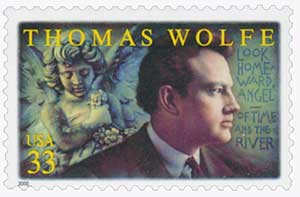
# 3444 - 2000 33c Literary Arts: Thomas Wolfe
33¢ Thomas Wolfe
Literary Arts Series
City: Asheville, NC
Quantity: 53,000,000
Printed by: Ashton-Potter (USA) Ltd
Printing Method: Lithographed
Perforations: 11
Color: Multicolored
Birth Of Thomas Wolfe
Wolfe was the youngest of eight siblings. His father was a stone carver and his mother ran a series of boarding houses, eventually becoming a successful real estate speculator. Wolfe grew up in one of these boarding houses until he went to the University of North Carolina at Chapel Hill in 1916.
There, Wolfe was a member of the Dialectic Society and edited the school newspaper, The Daily Tar Heel. He won the Worth Prize for Philosophy for his essay, The Crisis in Industry. Wolfe took playwriting courses and wrote two plays that were performed by the school’s acting troupe.
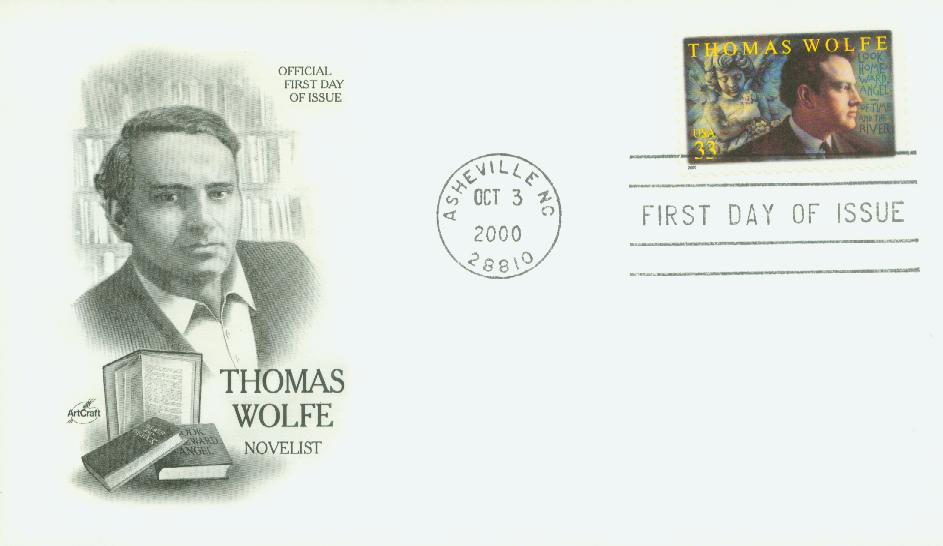
After graduating, Wolfe went on to attend Harvard, where he continued to study playwriting. Two versions of one of his plays were performed there. After graduating in 1922, Wolfe went to New York City to help raise money for the University of North Carolina and to try to sell some of his plays. When he couldn’t sell any, likely because of their lengthy run-times, he accepted a teaching position at New York University.
Wolfe soon began to realize that his writing style was more geared toward fiction than plays, so he began writing his first novel, Look Homeward, Angel. Set in a fictional small town based on his hometown of Asheville, the book was a largely autobiographical story of his childhood, reflecting a young man’s struggle in a small town.
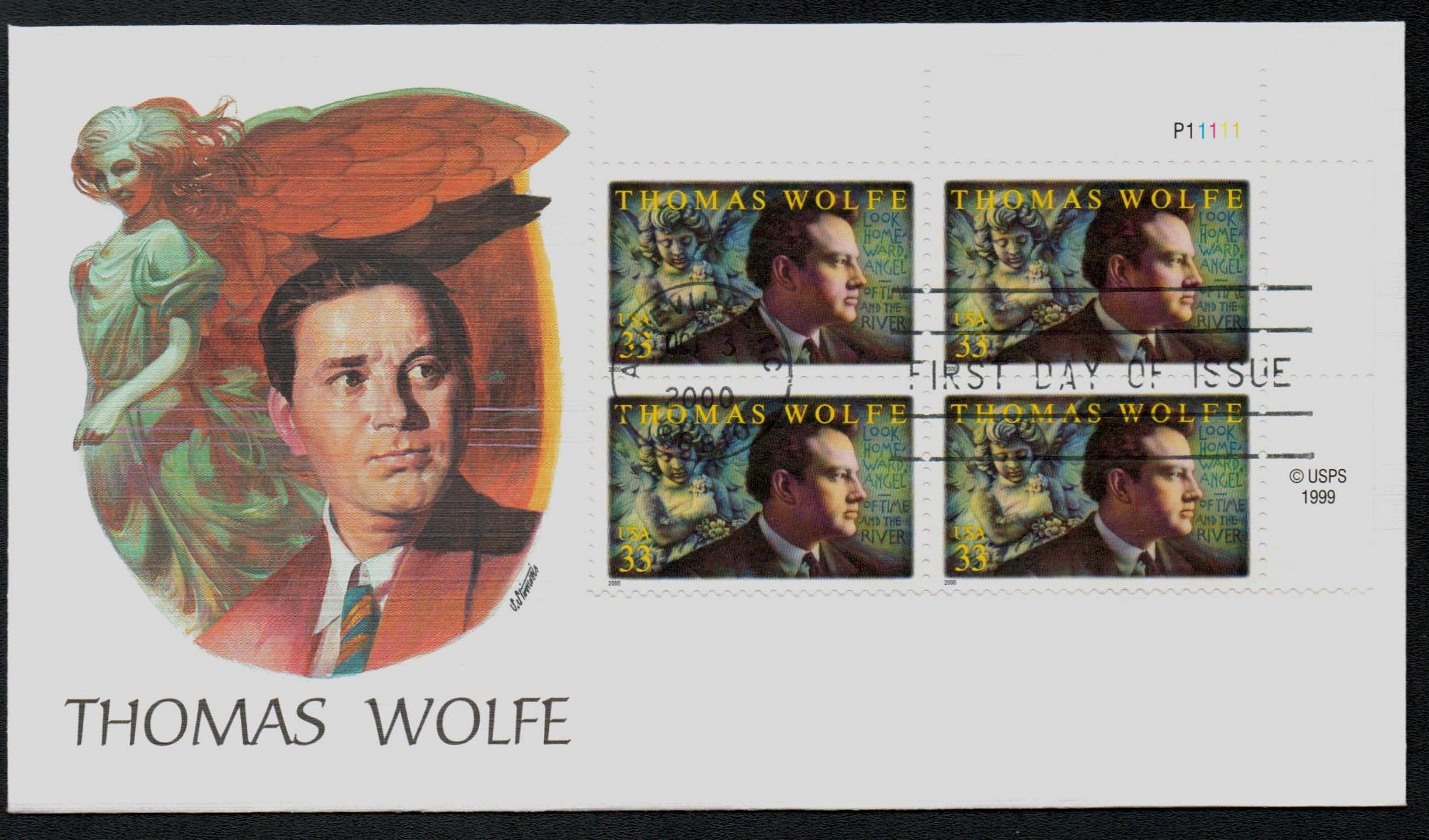
The book was published just days before the stock market crash of 1929 and received positive reviews. However, many people in Asheville, including his own family, were unhappy with how they were seemingly portrayed, so Wolfe stayed away from his hometown for several years. Instead, he traveled to Europe on a Guggenheim Fellowship. Soon, Look Homeward, Angel was a bestseller in the United Kingdom and Germany.
Wolfe spent the next four years writing a sequel, Of Time and the River. Published in 1935, it was an even greater success than his first book. However, this time the people of Asheville were even more upset because they weren’t included in the story at all.
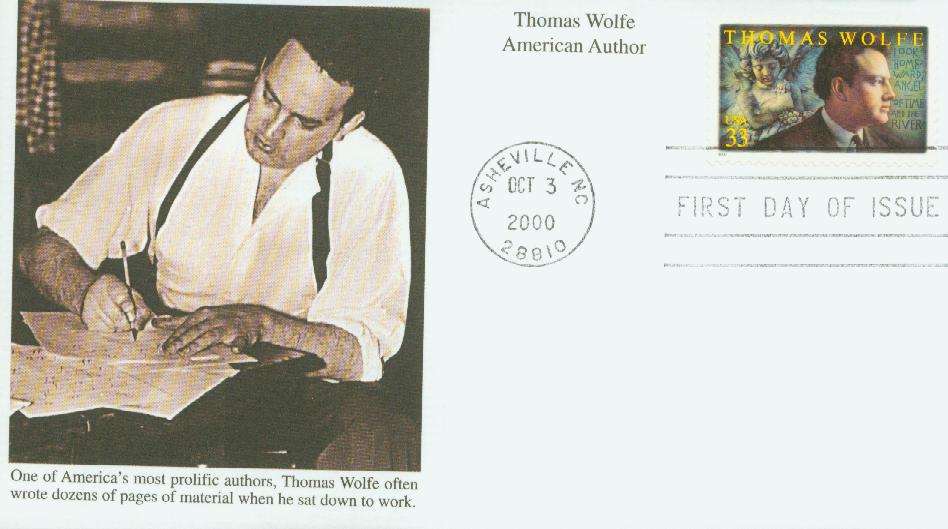
Wolfe again returned to Europe after the publishing of his second book. He greatly enjoyed spending time in Germany. However, in 1936 he saw discrimination against Jewish people there and he quickly changed his mind about his feelings of the country. When he returned home, he wrote a critical story about Germany, after which that country’s government banned his works and he wasn’t allowed to return.
Wolfe published a short story, Chickamauga, in 1937, set during the Civil War Battle of the same name. Shortly after, he returned back to Asheville for the first time since his first book was published.
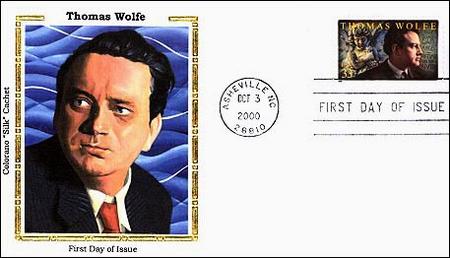
The following year, Wolfe went on a tour of the American West. After giving a lecture at Purdue University, he spent two weeks visiting 11 national parks. While in Seattle, he became sick with pneumonia and he was later diagnosed with miliary tuberculosis. Wolfe then went to Johns Hopkins Hospital, where it was discovered the disease had engulfed the whole right side of his brain. Wolfe went into a coma and died on September 15, 1938, just weeks before his 38th birthday.
Moving tributes poured in following Wolfe’s sudden death, including Time, which wrote, “of all American novelists of his generation, he was the one from whom most had been expected.” In the years following his death, Wolfe’s publisher released three books he’d written before his death: The Web and the Rock (1939), You Can’t Go Home Again (1940), and The Hills Beyond (1941). Several authors have cited Wolfe as an inspiration, including Jack Kerouac and Ray Bradbury.
33¢ Thomas Wolfe
Literary Arts Series
City: Asheville, NC
Quantity: 53,000,000
Printed by: Ashton-Potter (USA) Ltd
Printing Method: Lithographed
Perforations: 11
Color: Multicolored
Birth Of Thomas Wolfe
Wolfe was the youngest of eight siblings. His father was a stone carver and his mother ran a series of boarding houses, eventually becoming a successful real estate speculator. Wolfe grew up in one of these boarding houses until he went to the University of North Carolina at Chapel Hill in 1916.
There, Wolfe was a member of the Dialectic Society and edited the school newspaper, The Daily Tar Heel. He won the Worth Prize for Philosophy for his essay, The Crisis in Industry. Wolfe took playwriting courses and wrote two plays that were performed by the school’s acting troupe.

After graduating, Wolfe went on to attend Harvard, where he continued to study playwriting. Two versions of one of his plays were performed there. After graduating in 1922, Wolfe went to New York City to help raise money for the University of North Carolina and to try to sell some of his plays. When he couldn’t sell any, likely because of their lengthy run-times, he accepted a teaching position at New York University.
Wolfe soon began to realize that his writing style was more geared toward fiction than plays, so he began writing his first novel, Look Homeward, Angel. Set in a fictional small town based on his hometown of Asheville, the book was a largely autobiographical story of his childhood, reflecting a young man’s struggle in a small town.

The book was published just days before the stock market crash of 1929 and received positive reviews. However, many people in Asheville, including his own family, were unhappy with how they were seemingly portrayed, so Wolfe stayed away from his hometown for several years. Instead, he traveled to Europe on a Guggenheim Fellowship. Soon, Look Homeward, Angel was a bestseller in the United Kingdom and Germany.
Wolfe spent the next four years writing a sequel, Of Time and the River. Published in 1935, it was an even greater success than his first book. However, this time the people of Asheville were even more upset because they weren’t included in the story at all.

Wolfe again returned to Europe after the publishing of his second book. He greatly enjoyed spending time in Germany. However, in 1936 he saw discrimination against Jewish people there and he quickly changed his mind about his feelings of the country. When he returned home, he wrote a critical story about Germany, after which that country’s government banned his works and he wasn’t allowed to return.
Wolfe published a short story, Chickamauga, in 1937, set during the Civil War Battle of the same name. Shortly after, he returned back to Asheville for the first time since his first book was published.

The following year, Wolfe went on a tour of the American West. After giving a lecture at Purdue University, he spent two weeks visiting 11 national parks. While in Seattle, he became sick with pneumonia and he was later diagnosed with miliary tuberculosis. Wolfe then went to Johns Hopkins Hospital, where it was discovered the disease had engulfed the whole right side of his brain. Wolfe went into a coma and died on September 15, 1938, just weeks before his 38th birthday.
Moving tributes poured in following Wolfe’s sudden death, including Time, which wrote, “of all American novelists of his generation, he was the one from whom most had been expected.” In the years following his death, Wolfe’s publisher released three books he’d written before his death: The Web and the Rock (1939), You Can’t Go Home Again (1940), and The Hills Beyond (1941). Several authors have cited Wolfe as an inspiration, including Jack Kerouac and Ray Bradbury.












